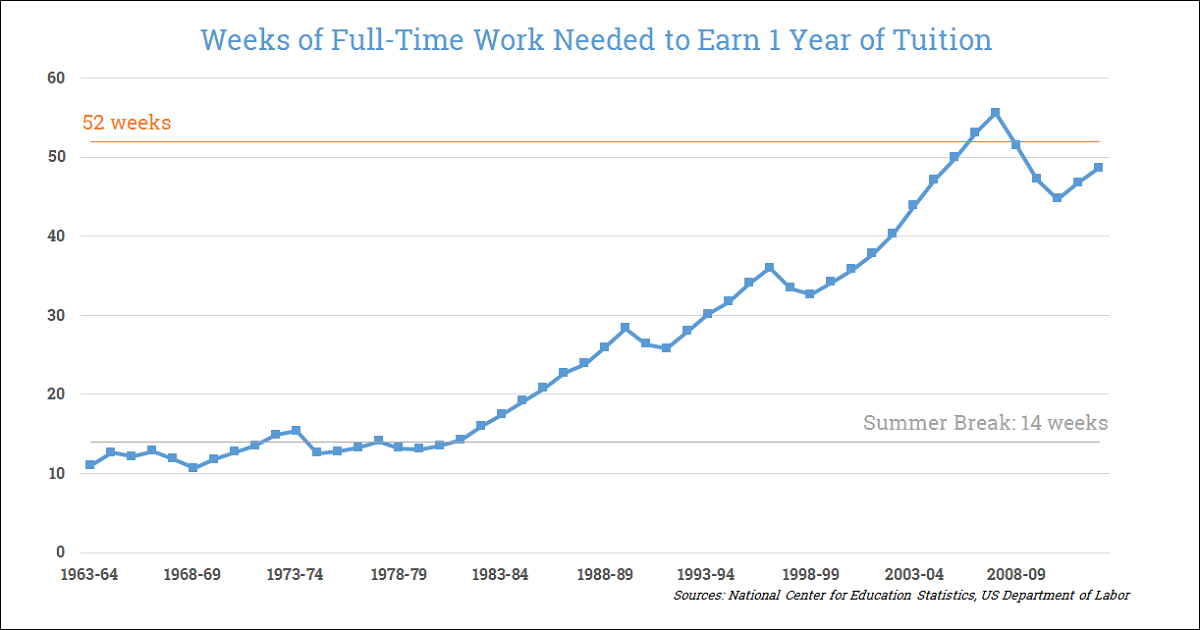She's not running for anything. Calm down. ;-)
You might want to consider that things are very different now than they were when you (or I) were in College.
Martin works for one of the University systems in California:
So what does Bernie do to address the all-too-real problem that Martin brings up?
As usual, Bernie had a good slogan, but he has no understanding of how the world actually works so what he says he wants can never happen the way he says it must. So he plays Purity Man and snipes from the sidelines when nobody whose support he needs joins him.
FWIW.
Cheers,
Scott.
You might want to consider that things are very different now than they were when you (or I) were in College.
Martin works for one of the University systems in California:
Martin says:
February 27, 2017 at 3:21 pm
@schrodingers_cat: Yeah. The challenge with something like free college is that we don’t treat higher education as a fungible commodity. We recognize (usually wrongly, but not always) that Harvard is great, and UC San Diego is very good, and Bowling Green is decent, and Cal State Chico is okay, even when studying the same degree. Now, nobody has EVER measured whether students learn more or come out better prepared among those institutions. For all we know Chico has the best educational attainment of them all.
So, if we make them free, how do we decide who goes to each? I will tell everyone straight up that nobody admits students the way that you think we do. We turn down quantitatively better students for quantitatively worse ones and do it on a large scale. It’s blindingly obvious if you’ve ever read admissions files (10s of thousands in my case) that the economic circumstances that a child grows up in has a massive impact on their readiness for college. A so-called ‘meritocracy’ for college admission would push the rich kids to the top and the poor kids to the bottom on a scale that you don’t see in any other public arena. Assuming that free college increased the number of students applying (which is daunting as most of the UC campuses each get 100K apps per year just at the undergrad level) then that stratification would only get worse. One equalizing factor now is that we can scholarship up the poor kids to make our public university more attractive than it is to the rich kids who will need to pay. We’d lose that important lever to providing access to as broad a cross-section of the state as possible.
Now, the solution to this is to increase supply, but in California that would mean adding somewhere in the neighborhood of a million seats to the higher ed systems to meet qualified demand. I’m cool with that – but that’s 30 major universities, and they don’t get built quickly, and they don’t get built inexpensively.
There’s a lot of really difficult challenges with doing this that I think are worth tackling, but they can’t get glossed over. They really matter a lot. If you don’t do the expansion, I guarantee that minority and first generation access to college will be gutted with a free college plan. The group you’re most trying to help gets locked out. Perez realizes this and went down the means testing route, which is one way to address the problem, just not the one that young people want. They want the massive build-out by taxing us old rich people. I’m fine with that approach, but someone in the Democratic party needs to package that and sell it, and nobody is.
So what does Bernie do to address the all-too-real problem that Martin brings up?
As usual, Bernie had a good slogan, but he has no understanding of how the world actually works so what he says he wants can never happen the way he says it must. So he plays Purity Man and snipes from the sidelines when nobody whose support he needs joins him.
FWIW.
Cheers,
Scott.

